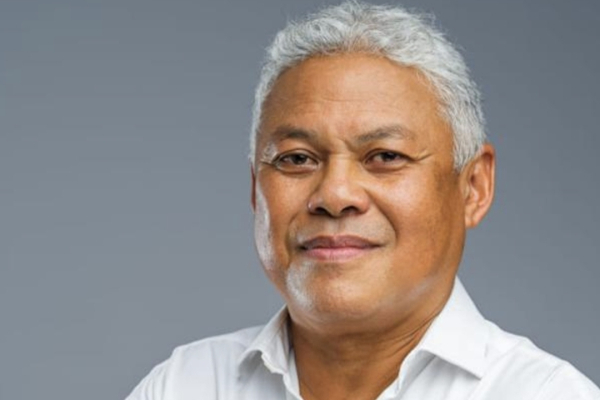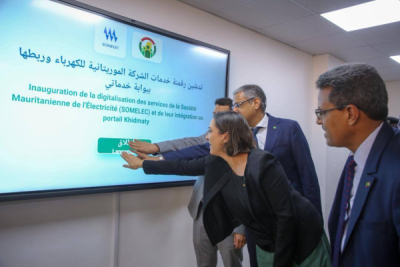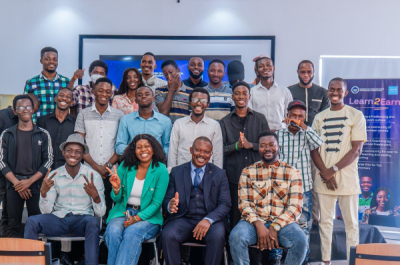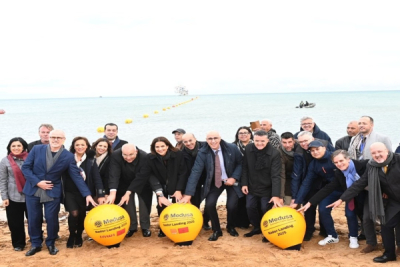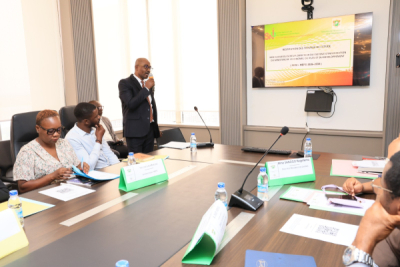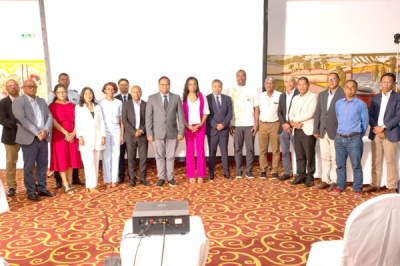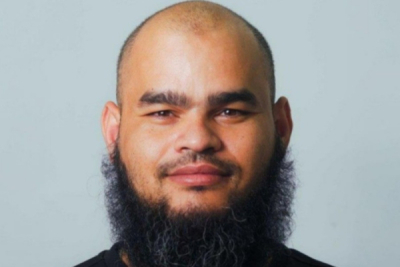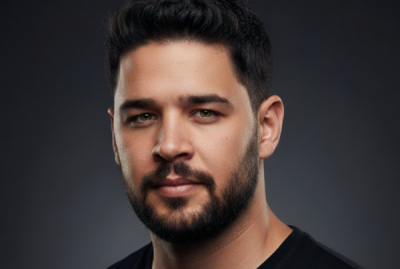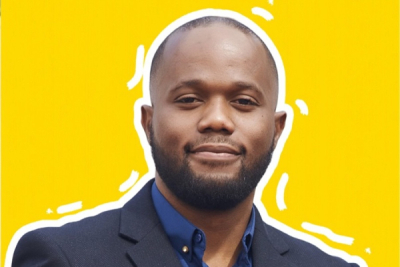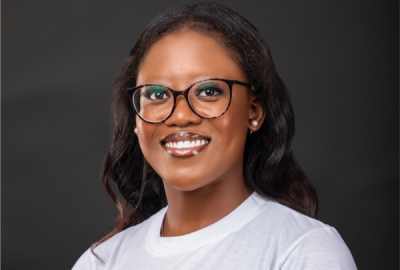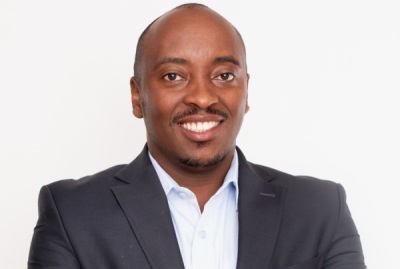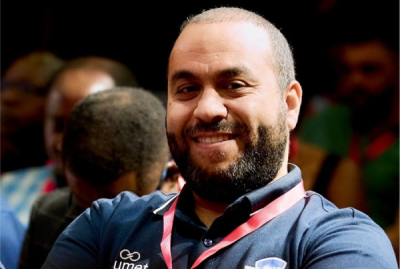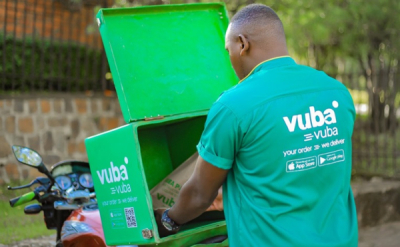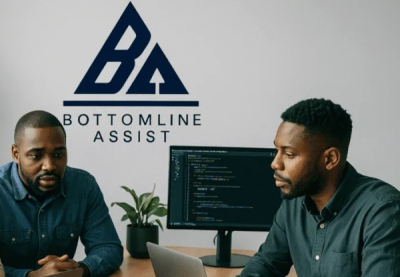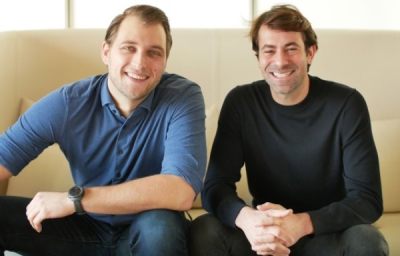The e-commerce industry has grown exponentially in recent years and the number of online marketplaces has followed suit. The marketplaces that were developed in the wake of the e-commerce boom include DizzitUp, an African start-up and finalist of the Ecobank Fintech Challenge 2022. The platform has great ambitions and wants to become the African alternative to Alibaba. During the Lomé chapter of the Africa Fintech Tour, Togo First interviewed its CEO, Solofo Rafeno, to learn more about this marketplace which is getting popular by the day in Benin, Togo, and Madagascar.
Togo First: Could you tell us what DizzitUp is about?
Solofo Rafeno (SR): DizzitUp is an online marketplace that offers African SMEs access to financing solutions to develop their activities. The start-up also helps these businesses increase their revenue by providing an online store that enables them to showcase their products and services to locals and the African diaspora, which is constituted of over 40 million individuals.
DizzitUp is focused on essential goods and services sold exclusively by African companies in 6 categories: food, renewable energy and construction, health, education, tech (phones, computers & internet), and shortly, new decentralized financial services (DeFi).
As a result, DizzitUp enables the digital and financial inclusion of African VSEs/SMEs while bringing them additional revenues.
In 4 months of operation, DizzitUp Marketplace has registered 150 merchants and we plan to exceed 1,000 merchants in Togo, Benin, Madagascar, and Ivory Coast by the end of 2023.
Togo First: What are the main consumer profiles targetted by DizzitUp?
SR: DizzitUp buyers are divided into two main groups: locals that buy for their consumption and members of the African diaspora -more than 40 million individuals- that buy for their relatives based in Togo, Benin and Madagascar to date, and soon in Côte d’Ivoire.
Togo First: How does your marketplace address trust issues?
SR: 80% of the African economy is made up of informal small and medium enterprises (SMEs). To encourage trust between merchants and consumers, one solution is to carefully select merchants, verify them, and focus on essential products and services such as food, self-sufficient solar power equipment, building materials, phones, computers, and health and education services.
DizzitUp field teams verify that the stores have physical addresses and offer products that meet our criteria. We then take pictures and videos and only selected products are posted on our platform.
Also, since logistics is crucial to guaranteeing service quality, our platform offers an extra service: delivery, which is carried out by independent deliverymen.
Togo First: How are the deliveries made?
SR: Our main aim is to always boost the activities of our [registered] merchants. So, we prefer buyers picking their products directly from stores so that the flow of customers can be increased. Package pickup is the default choice but, each merchant can suggest delivery services, which are offered by local DizzitUp partners.
Let’s say for instance that a relative living in Kara buys on the platform and pays using TMoney or Flooz, the beneficiary, a family member in Lome, can come and pick up the goods at the store in Lome or the goods can be delivered by DizzitUp's partner.
Another case is the recurrent purchase of food baskets, "FoodBox", by a Togolese living in New York for his relatives living in Lome. Once the order is paid via Visa or Mastercard, the relatives living in Lome can pick up the goods at the selling store or have them delivered. The merchant is immediately paid by DizzitUp -via TMoney or Flooz or by bank transfer- after the goods are delivered. It should be noted that for any order exceeding CFA30 000, there is free delivery anywhere within the Greater Lome region.
Togo First: You have a Blockchain-based strategy. Do you think that payment methods such as crypto-currencies can be game-changers for marketplaces like yours in Africa?
SR: It is important to note that blockchain is not a payment method in itself, but rather an infrastructure similar to Swift.
Currently, our marketplace accepts Visa and Mastercard international bank cards and mobile money from seven French-speaking countries in West Africa.
We will soon launch our DizzitApp application, based on the Blockchain infrastructure, allowing the diaspora and young urban Africans to pay in Bitcoin and other crypto-currencies knowing that merchants will still be paid in local currency, FCFA, and Ariary for Madagascar. This third means of payment on DizzitApp will allow those with digital assets to use part of their assets to support their families back home with their needs (buying them food, paying school fees and medical procedures, etc.).
Cryptocurrencies are becoming a global medium of exchange with 200-400 million users, including over 40 million in Africa. These people will soon be able to use their cryptocurrency assets to buy essential goods such as food for their consumption or their families in other African countries
Togo First: What do you think of regulations, notably those related to crypto-currency use?
SR: Togo is the second African country with the largest number of crypto-currency users after Nigeria, which represents huge opportunities for the African economy.
Decentralized blockchain networks and associated crypto-currencies are an opportunity for emerging countries. They can allow African countries to accelerate intra-continental trade and facilitate the financial inclusion of VSEs/SMEs and citizens as mobile money services have done for a decade.
But all these new technologies can only be beneficial to businesses and citizens if there is a clearly defined regulatory framework that is regularly amended over time.
Regulators have realized that there is a need for this regulatory framework. We are eagerly expecting them to comply with them to sustain our investments and boost our merchants’ activities.
Togo First: Why did you choose Togo as your base? Do you think that Togo can accelerate the deployment of your startup in the sub-region?
SR: We created our first subsidiary in Togo, which is a real financial hub in the sub-region. We chose to set up here in Togo because the country has a legal infrastructure and a favorable business environment that attracts many financial institutions. The presence of Ecobank's global headquarters in Lomé was also a decisive factor.
Despite our start-up status, they welcomed us into their multinational division. This partnership allowed us to integrate their payment gateway to manage bank cards worldwide and mobile money in 7 countries in the sub-region.
As a result, we were able to create our subsidiary in less than a month, which is an important comparative advantage.
Togo First: You were one of the finalists of the annual competition organized by your partner Ecobank. Was the initial partnership a decisive factor in that selection?
SR: Our partnership with Ecobank was not the decisive factor in our selection in the competition, as other start-ups also had significant partnerships. However, our ambition to expand in 21 countries, of which Ecobank is absent in only two, and our vision and ambition to be an economic player impacting the VSE/SMEs in Africa gave us a definite advantage.
We were one of the six finalists, selected among 700 startups from 59 countries, in the Ecobank Fintech Challenge 2022.
Togo First: You have already raised venture capital funds once. Do you intend to raise additional funds?
SR: Indeed, DizzitUp has already managed to raise $340,000 in funding from 44 individual investors, called "business angels". About a third of these investors are Africans living in Africa or Europe. The funds raised helped develop the start-up and its technology platform over 3 years.
The company is currently planning a second round of $3 million in equity to finance its expansion in Côte d'Ivoire and Nigeria and to develop the new decentralized finance services for VSEs/SMEs merchants of DizzitUp Marketplace.
For this new round, DizzitUp aims to attract private African investors for about 20% of the total amount sought and international investment funds (VCs, international institutions, and corporate funds) for the remaining.
Togo First: What are your future expansion plans?
SR: Regarding our plans, we have decided to strengthen our presence in Madagascar, Togo, and Benin in 2023 and launch a subsidiary in Côte d’Ivoire. We also plan to expand in Nigeria, in 2024, to consolidate our position in West Africa.
I am convinced that Nigeria is not only Africa’s economic driver but also the key to success for a pan-African expansion. No one can claim to be a pan-African company without being present and operational in Nigeria.
Togo First: What are your strategies to achieve those plans?
SR: Our marketplace model is quite simple: purchases are proportional to the number of merchants and products listed. The more offers we have, the more accounts are created, because people can buy what they want. We invest in advertising for merchants and have already made sales in 2022. One of our competitive advantages beyond our decentralized payment infrastructure is our ability to attract merchants by combining digital and on-ground approaches.
We always start with a physical presence approach, deploying teams on the ground to recruit merchants. We also have student recruiters and an incentive system to encourage recruiters, who are also marketing managers for merchants. We provide full free support to merchants, including creating visuals, photos, and videos that we post on Facebook. Recruiters become marketers for our merchants.
Interview by Fiacre E. Kakpo


